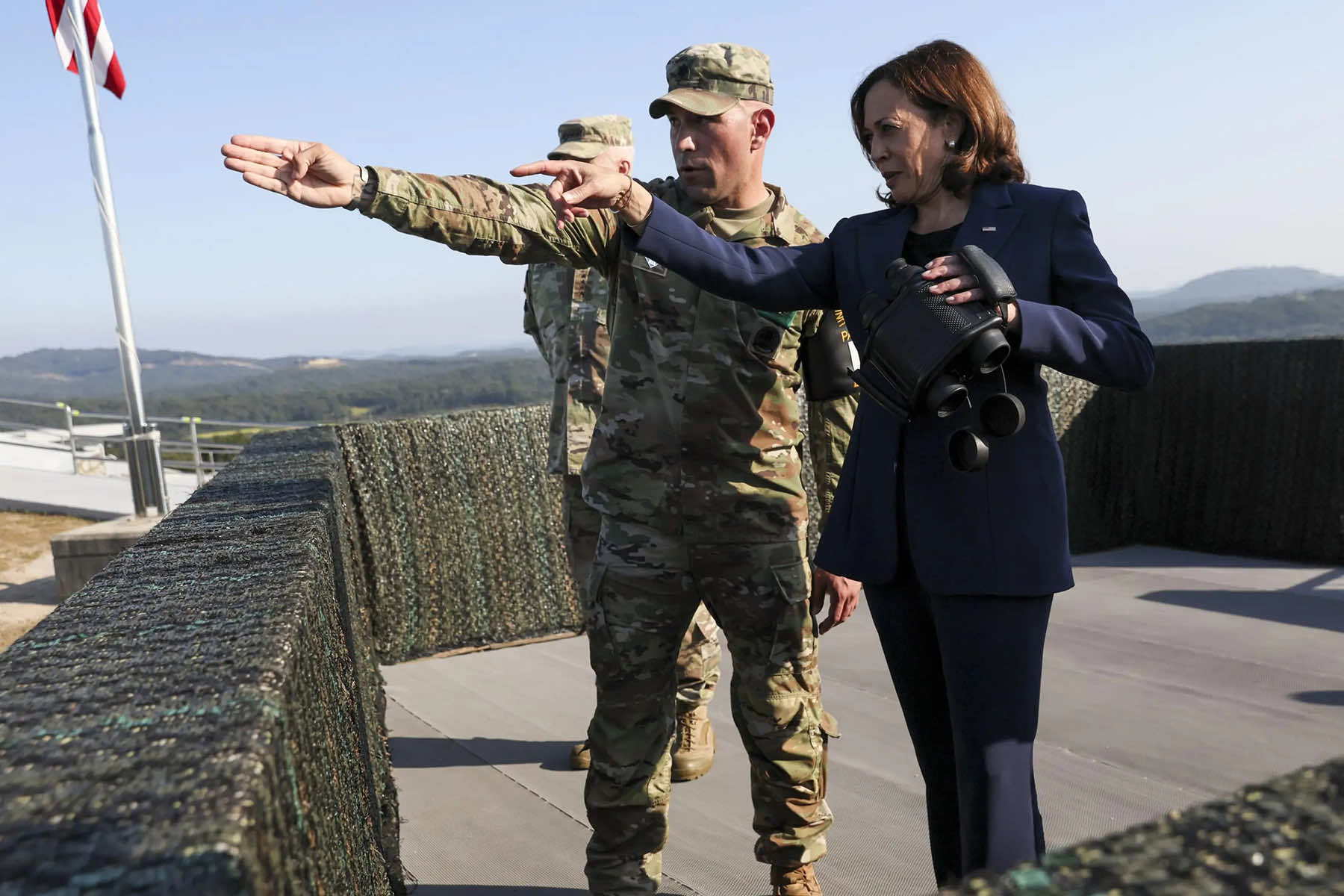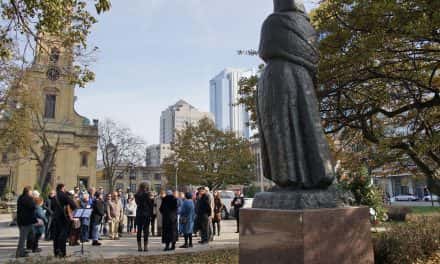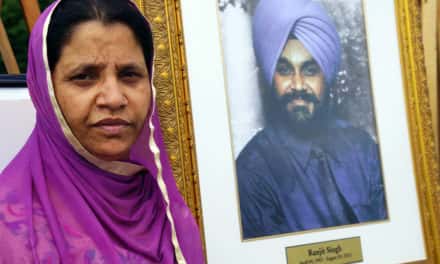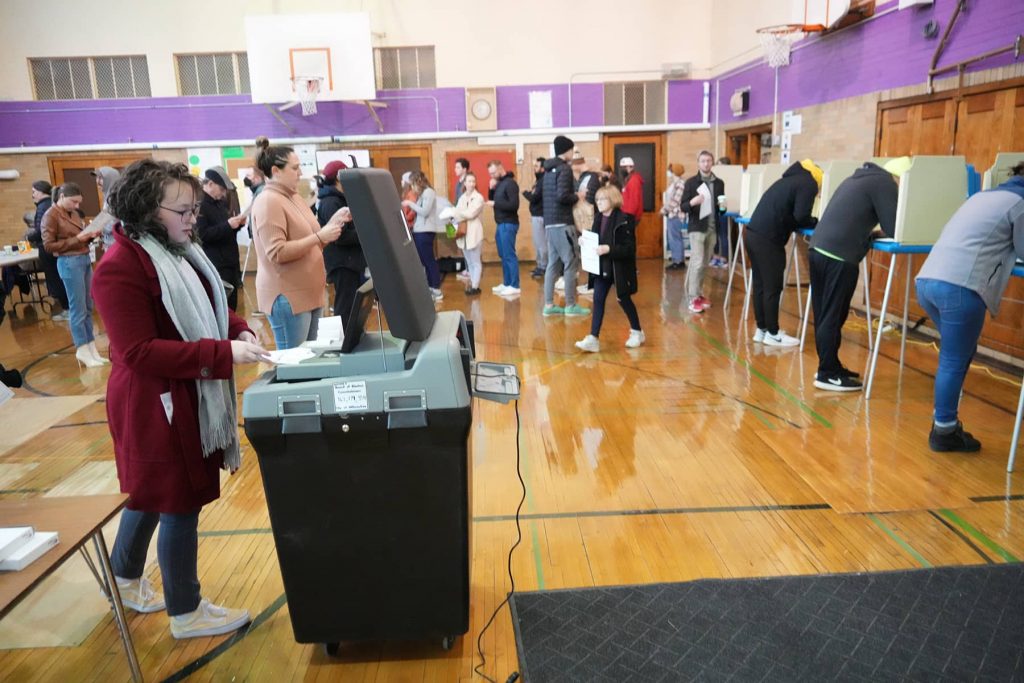
As the presidential campaign for Kamala Harris continues its momentum before the November 5 election, her tenure as Vice President, particularly her handling of complex international issues, has seen limited coverage by the news media.
Among the many defining moments of her vice presidency was her 2022 visit to South Korea and the subsequent Panmunjom incident in 2023, where a U.S. soldier entered North Korea under mysterious circumstances.
On July 18, 2023, a U.S. soldier crossed into North Korea during a tour of the Panmunjom border village inside the Demilitarized Zone (DMZ). The incident occurred at a time when tensions between North Korea and the United States were already high, with ongoing concerns about North Korea’s missile tests and nuclear ambitions.
The DMZ, a 154-mile-long buffer zone, is one of the most heavily fortified regions in the world. Panmunjom, located within this zone, is historically significant as the site where the Korean Armistice Agreement was signed in 1953. The agreement ended the hostilities of the Korean War, but technically North and South Korea remain in a state of war to this day, with the DMZ symbolizing the unresolved conflict.
As Vice President, Harris traveled to the DMZ at Panmunjom to underscore the U.S. commitment to South Korea’s security amid increasing provocations from North Korea. She used the opportunity to emphasize the “ironclad” nature of the U.S.-South Korea alliance.
I cannot state enough that the commitment of the United States to the defense of the Republic of Korea is ironclad and that we will do everything in our power to ensure that it has meaning in every way that the words suggest. This includes our extended deterrence commitment, which is supported by the full range of U.S. military capabilities, again, as demonstrated right here before you.” – Vice President Kamala Harris, September 29, 2022
Standing near guard towers and security cameras at the DMZ, she observed military installations and was briefed by both U.S. and South Korean soldiers on the situation at the border.
The DMZ also reminds us of the dramatically different paths that the two sides took from those early days. Over the past seven decades, it has been clear: In the south, we see a thriving democracy, innovation, economic prosperity, and strength, a powerhouse — dare I say — on many of these issues, and a force for good in the world. In the north, we see a brutal dictatorship, rampant human rights violations, and an unlawful weapons program that threatens peace and stability. The United States and the world seek a stable and peaceful Korean Peninsula where the DPRK is no longer a threat.” – Vice President Kamala Harris, September 29, 2022
The DMZ is not just a physical barrier, it is a symbol of the wider geopolitical struggle that has defined the Korean Peninsula since the mid-20th century. North Korea, under the leadership of Kim Jong Un, continues to pursue an aggressive military strategy, including the development of nuclear weapons and ballistic missile technology. That has kept the region on edge, with both South Korea and Japan expressing deep concerns about the potential for conflict.
The visit by Harris to the DMZ was part of a broader effort to reassure U.S. allies in the region of America’s commitment to their security. Her meetings with South Korean President Yoon Suk Yeol and other officials focused on strengthening the U.S.-South Korea alliance and addressing the threats posed by North Korea.
The discussions were not limited to military issues. They also included economic and technological cooperation, as well as efforts to stabilize the region in the face of China’s growing influence.
“Our shared goal — the United States and the Republic of Korea — is a complete denuclearization of the Korean Peninsula. The alliance between the United States and the Republic of Korea was forged in shared sacrifice during the brutal Korean War. Let us remember, Americans and Koreans fought and died together for freedom and for liberty. Thirty-six thousand U.S. service members lost their lives. A hundred and thirty-seven thousand Korean soldiers lost their lives, as did millions of innocent civilians. Nearly 70 years since the Korean Armistice, the threat of conflict remains. And we are reminded that the alliance between the United States and the Republic of Korea stands ready to address any contingency. The commitment of the United States to the defense of the Republic of Korea, I will report, is ironclad. Today more than 28,000 U.S. service members serve shoulder-to-shoulder with our allies here to deter DPRK aggressions and to protect the Republic of Korea and the American people.” – Vice President Kamala Harris, September 29, 2022
As the Harris presidential campaign has expanded in popularity, her experience in Korea has played a key part in her narrative on foreign policy and national security. Her actions during her visit to Korea and her subsequent handling of the Panmunjom incident were examples of her leadership in the face of international crises.
The Harris campaign has emphasized her commitment to maintaining strong alliances, particularly in Asia, where the U.S. faces significant strategic challenges. She has also positioned herself as a candidate who understands the complexities of international relations and who is prepared to defend U.S. interests on the global stage.
The Panmunjom incident stands as a reminder of the unpredictability of global events and the need for a leader who can respond swiftly and effectively. In her experience at the DMZ, Harris witnessed firsthand the realities of the Korean conflict. Her campaign has made it clear that she views strong, principled leadership as essential to maintaining peace and stability in regions like the Korean Peninsula.
Harris has demonstrated her ability to confront international crises with decisiveness and clarity, qualities that are crucial in a world fraught with uncertainty. As the campaign advances to election day, these moments will continue to highlight the capacity Harris has for strong leadership, offering voters a clear vision of how she intends to guide the nation through the turmoil of global politics.
MI Staff (Korea)
Leah Millis (AP), Ahn Yong-hoon (AP), Lee Jin-man (AP), David Guttenfelder (AP), Susan Walsh (AP), and Hannah Stewart (via U.S. Army)
- Exploring Korea: Stories from Milwaukee to the DMZ and across a divided peninsula
- A pawn of history: How the Great Power struggle to control Korea set the stage for its civil war
- Names for Korea: The evolution of English words used for its identity from Gojoseon to Daehan Minguk
- SeonJoo So Oh: Living her dream of creating a "folded paper" bridge between Milwaukee and Korean culture
- A Cultural Bridge: Why Milwaukee needs to invest in a Museum that celebrates Korean art and history
- Korean diplomat joins Milwaukee's Korean American community in celebration of 79th Liberation Day
- John T. Chisholm: Standing guard along the volatile Korean DMZ at the end of the Cold War
- Most Dangerous Game: The golf course where U.S. soldiers play surrounded by North Korean snipers
- Triumph and Tragedy: How the 1988 Seoul Olympics became a battleground for Cold War politics
- Dan Odya: The challenges of serving at the Korean Demilitarized Zone during the Vietnam War
- The Korean Demilitarized Zone: A border between peace and war that also cuts across hearts and history
- The Korean DMZ Conflict: A forgotten "Second Chapter" of America's "Forgotten War"
- Dick Cavalco: A life shaped by service but also silence for 65 years about the Korean War
- Overshadowed by conflict: Why the Korean War still struggles for recognition and remembrance
- Wisconsin's Korean War Memorial stands as a timeless tribute to a generation of "forgotten" veterans
- Glenn Dohrmann: The extraordinary journey from an orphaned farm boy to a highly decorated hero
- The fight for Hill 266: Glenn Dohrmann recalls one of the Korean War's most fierce battles
- Frozen in time: Rare photos from a side of the Korean War that most families in Milwaukee never saw
- Jessica Boling: The emotional journey from an American adoption to reclaiming her Korean identity
- A deportation story: When South Korea was forced to confront its adoption industry's history of abuse
- South Korea faces severe population decline amid growing burdens on marriage and parenthood
- Emma Daisy Gertel: Why finding comfort with the "in-between space" as a Korean adoptee is a superpower
- The Soul of Seoul: A photographic look at the dynamic streets and urban layers of a megacity
- The Creation of Hangul: A linguistic masterpiece designed by King Sejong to increase Korean literacy
- Rick Wood: Veteran Milwaukee photojournalist reflects on his rare trip to reclusive North Korea
- Dynastic Rule: Personality cult of Kim Jong Un expands as North Koreans wear his pins to show total loyalty
- South Korea formalizes nuclear deterrent strategy with U.S. as North Korea aims to boost atomic arsenal
- Tea with Jin: A rare conversation with a North Korean defector living a happier life in Seoul
- Journalism and Statecraft: Why it is complicated for foreign press to interview a North Korean defector
- Inside North Korea’s Isolation: A decade of images show rare views of life around Pyongyang
- Karyn Althoff Roelke: How Honor Flights remind Korean War veterans that they are not forgotten
- Letters from North Korea: How Milwaukee County Historical Society preserves stories from war veterans
- A Cold War Secret: Graves discovered of Russian pilots who flew MiG jets for North Korea during Korean War
- Heechang Kang: How a Korean American pastor balances tradition and integration at church
- Faith and Heritage: A Pew Research Center's perspective on Korean American Christians in Milwaukee
- Landmark legal verdict by South Korea's top court opens the door to some rights for same-sex couples
- Kenny Yoo: How the adversities of dyslexia and the war in Afghanistan fueled his success as a photojournalist
- Walking between two worlds: The complex dynamics of code-switching among Korean Americans
- A look back at Kamala Harris in South Korea as U.S. looks ahead to more provocations by North Korea
- Jason S. Yi: Feeling at peace with the duality of being both an American and a Korean in Milwaukee
- The Zainichi experience: Second season of “Pachinko” examines the hardships of ethnic Koreans in Japan
- Shadows of History: South Korea's lingering struggle for justice over "Comfort Women"
- Christopher Michael Doll: An unexpected life in South Korea and its cross-cultural intersections
- Korea in 1895: How UW-Milwaukee's AGSL protects the historic treasures of Kim Jeong-ho and George C. Foulk
- "Ink. Brush. Paper." Exhibit: Korean Sumukhwa art highlights women’s empowerment in Milwaukee
- Christopher Wing: The cultural bonds between Milwaukee and Changwon built by brewing beer
- Halloween Crowd Crush: A solemn remembrance of the Itaewon tragedy after two years of mourning
- Forgotten Victims: How panic and paranoia led to a massacre of refugees at the No Gun Ri Bridge
- Kyoung Ae Cho: How embracing Korean heritage and uniting cultures started with her own name
- Complexities of Identity: When being from North Korea does not mean being North Korean
- A fragile peace: Tensions simmer at DMZ as North Korean soldiers cross into the South multiple times
- Byung-Il Choi: A lifelong dedication to medicine began with the kindness of U.S. soldiers to a child of war
- Restoring Harmony: South Korea's long search to reclaim its identity from Japanese occupation
- Sado gold mine gains UNESCO status after Tokyo pledges to exhibit WWII trauma of Korean laborers
- The Heartbeat of K-Pop: How Tina Melk's passion for Korean music inspired a utopia for others to share
- K-pop Revolution: The Korean cultural phenomenon that captivated a growing audience in Milwaukee
- Artifacts from BTS and LE SSERAFIM featured at Grammy Museum exhibit put K-pop fashion in the spotlight
- Hyunjoo Han: The unconventional path from a Korean village to Milwaukee’s multicultural landscape
- The Battle of Restraint: How nuclear weapons almost redefined warfare on the Korean peninsula
- Rejection of peace: Why North Korea's increasing hostility to the South was inevitable
- WonWoo Chung: Navigating life, faith, and identity between cultures in Milwaukee and Seoul
- Korean Landmarks: A visual tour of heritage sites from the Silla and Joseon Dynasties
- South Korea’s Digital Nomad Visa offers a global gateway for Milwaukee’s young professionals
- Forgotten Gando: Why the autonomous Korean territory within China remains a footnote in history
- A game of maps: How China prepared to steal Korean history to prevent reunification
- From Taiwan to Korea: When Mao Zedong shifted China’s priority amid Soviet and American pressures
- Hoyoon Min: Putting his future on hold in Milwaukee to serve in his homeland's military
- A long journey home: Robert P. Raess laid to rest in Wisconsin after being MIA in Korean War for 70 years
- Existential threats: A cost of living in Seoul comes with being in range of North Korea's artillery
- Jinseon Kim: A Seoulite's creative adventure recording the city’s legacy and allure through art
- A subway journey: Exploring Euljiro in illustrations and by foot on Line 2 with artist Jinseon Kim
- Seoul Searching: Revisiting the first film to explore the experiences of Korean adoptees and diaspora




































